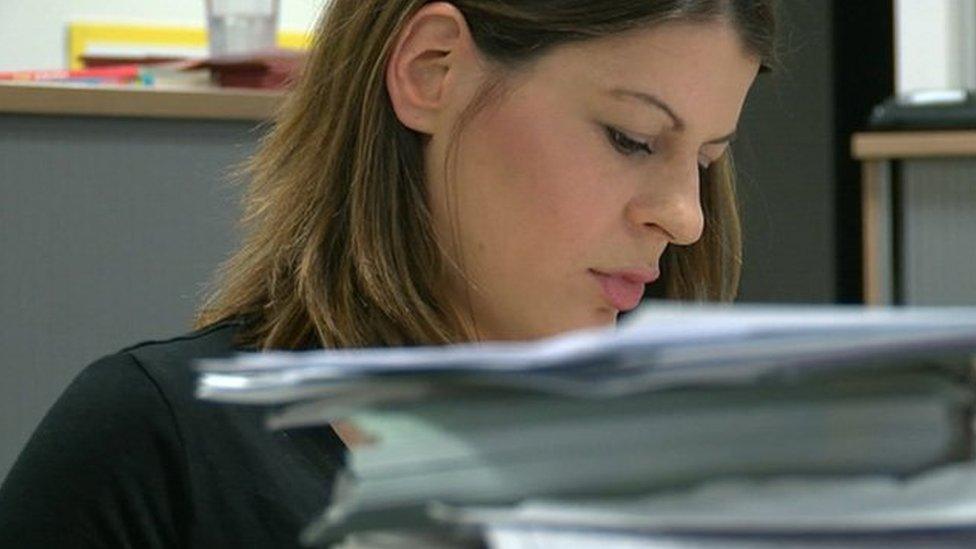Menopause: Lack of specialist care 'limits treatments'
- Published
Helen Owen had a hysterectomy after suffering with endometriosis
A mother who started the menopause at 29 said she had to "just get on with it" because of a lack of specialist care in Wales.
When Helen Owen, from Wrexham, had a hysterectomy due to endometriosis, she went into surgical menopause, external.
She said with no dedicated specialist clinic in her area, she could not have some treatments.
The health board for north Wales said it planned to set up a dedicated menopause clinic "in the near future".
Betsi Cadwaladr University Health Board said some while a specialist unit was not available, gynaecology consultants were accredited menopause specialists and provided services in their clinics.
When mother-of-three Mrs Owen, now 32, had a hysterectomy, one ovary was removed and the other shut down, meaning she went into surgical menopause.
She suffered from hot flushes, fatigue and osteoporosis which recently caused her to dislocate her knee.
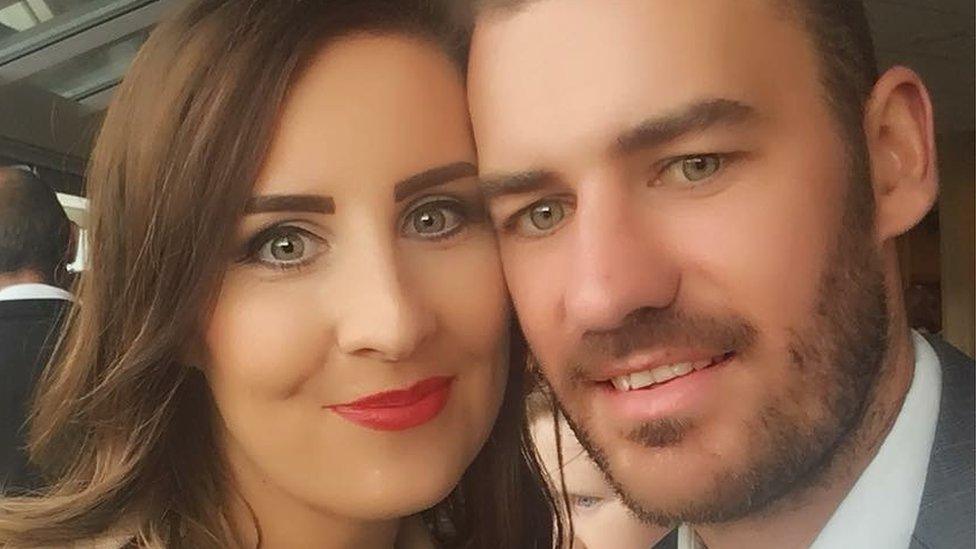
Helen Owen had a hysterectomy after suffering with endometriosis
Mrs Owen told Eye on Wales: "It's just a horrendous pain that you can't do anything about.
"The children want me to run around the park with them and play football, but I have to sit and draw with them. I can't be active with them."
Due to a blood-clotting condition, Mrs Owen was told by a GP she could not have hormone replacement therapy (HRT).
She said she was "placed on anti-anxiety medication and left to get on with it".
"Why should I miss out on something just because I live in a different area? It should be offered to everybody," she added.
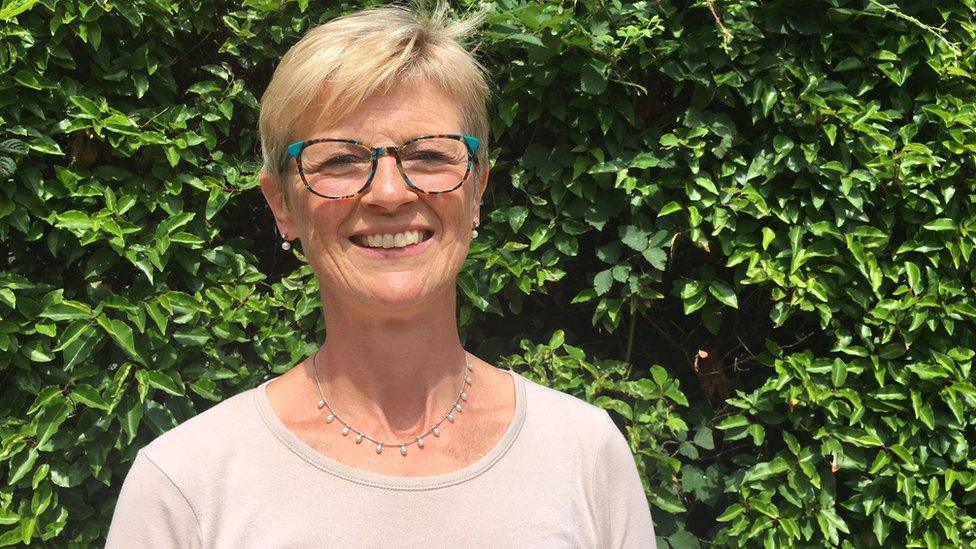
Dr Charlotte Fleming runs a menopause clinic once a week
Dr Charlotte Fleming, who works for the Aneurin Bevan health board, runs one of the only two specialist clinics in Wales once a week in Cwmbran, Torfaen.
She said: "Giving HRT is so safe and so easy and so straightforward. It should be the first line of treatment for the vast majority of women.
"It's imperative that we get more specialist care, so that every woman can get the care she needs."
Dr Fleming said Mrs Owen could probably safely be put on a form of HRT, but only a specialist would have the confidence to prescribe it.
Chief executive of Fair Treatment for the Women of Wales, Debbie Shaffer, said: "This isn't a small issue, this is a widespread, Wales-wide issue affecting 52% of the population, and the Welsh government has a responsibility to the women of this nation to take a lead on this."
The Welsh Government said it had set up a women's health implementation group to look at "issues where urgent action is necessary".

'The menopause forced me to quit my job'
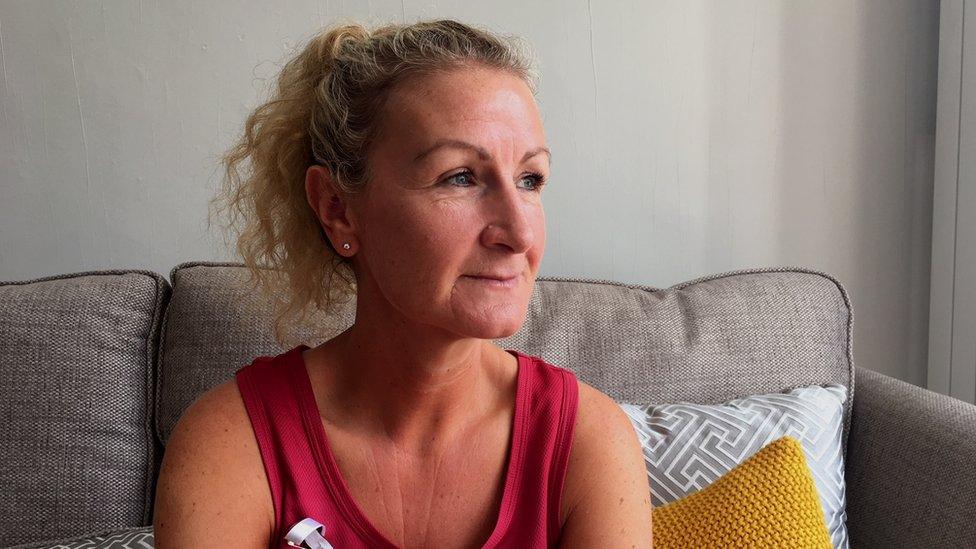
Lisa Nicholls, 49, from Newport, developed peri-menopause symptoms four years ago.
Her fatigue, insomnia, night sweats and hot flushes got so bad she felt she could not work anymore.
"I was worried I was going to fail and I was worried that I would get managed out of my job. So I made up my mind to resign," she said.
Despite this, she had to wait three years before being referred to Dr Fleming's clinic and was given HRT.
"I wake up and I feel like it's a brand new day. If I'd had the right treatment earlier I would never have made that decision to give up my job," she said.
Eye On Wales is on BBC Radio Wales on Wednesday 18 July at 18:30 BST
- Published7 July 2018

- Published15 June 2018

- Published13 April 2018
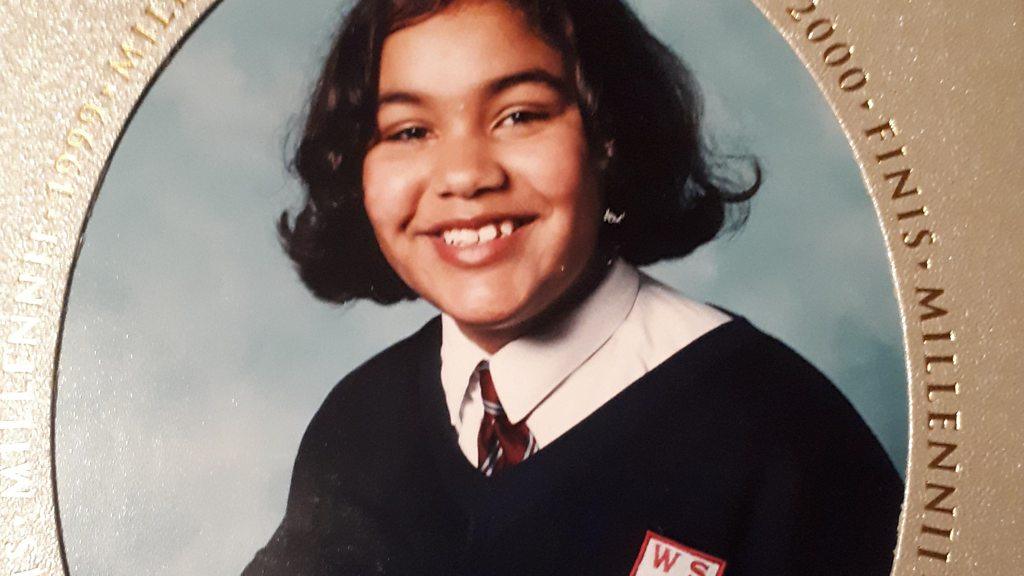
- Published14 December 2016
